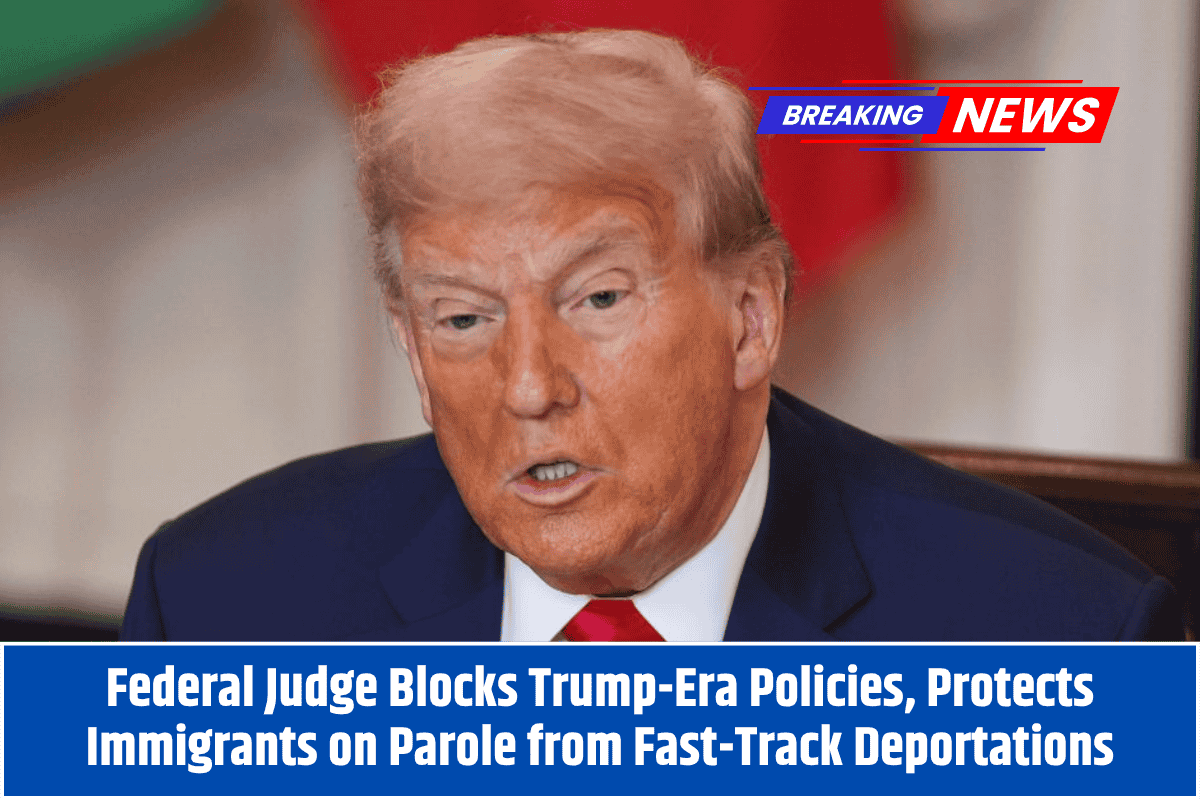A U.S. District Judge in Washington, D.C., has granted a significant legal victory to immigrant-rights groups, blocking the Trump administration’s attempts to expedite deportations for immigrants on parole.
Judge Jia M. Cobb ruled that the actions of the U.S. Department of Homeland Security (DHS), U.S. Customs and Immigration Services (USCIS), and Immigration and Customs Enforcement (ICE) exceeded the agency’s statutory authority and were arbitrary and capricious.
A Victory for Immigrants on Parole
The case began after a coalition of immigrant-rights organizations filed a lawsuit in March 2023, challenging the Trump administration’s policies aimed at fast-tracking the deportation of immigrants who had been granted parole to enter the U.S.
Parole is a legal process that allows certain individuals to enter the U.S. temporarily for humanitarian or other reasons. Under the Trump administration’s policy changes, those who had been granted parole were at risk of being quickly deported, despite having been in the country legally.
Judge Cobb’s decision issued a stay on the government’s actions, which means the policies preventing parolees from seeking asylum or relief will not proceed while the case is ongoing.
Cobb described the government’s actions as “ultra vires”—meaning they were beyond the scope of the agency’s power—and found the policies to be in violation of the Administrative Procedure Act (APA), which governs how federal agencies should operate.
Real-World Impact on Immigrants
The ruling was a response to claims from immigrant-rights groups that the government’s actions would harm those who had fled oppressive regimes and dangerous conditions in their home countries.
The court documents emphasized that these immigrants followed legal procedures to enter the U.S. and should not be subject to unfair deportations or removal proceedings.
Judge Cobb framed the issue as a question of fairness, stating that these immigrants, having arrived under rules set by the U.S. government, deserved the chance to present their claims for asylum or other legal relief.
In her ruling, she noted that many of the affected immigrants had been detained in poor conditions, far from their families and legal representation, and were subjected to expedited removal proceedings without the ability to properly defend themselves.
A Broader Debate on Immigration Policies
The judge also compared the government’s treatment of these parolees to the oppressive regimes many of them fled. “In a world of bad options, they played by the rules,” Cobb wrote, emphasizing that the current system, under the Trump administration’s directives, restricts these immigrants’ ability to seek relief and subjects them to summary removal.
The decision also questions whether the U.S. will continue to uphold a system where people can plead their case, or whether it will adopt a more arbitrary approach, resembling the very regimes many of these immigrants fled.
Cobb’s ruling represents a direct challenge to policies that could have made the U.S. resemble the countries immigrants sought to escape.
This ruling, which prevents the Trump administration’s fast-track deportation policies from moving forward, represents a win for immigrant-rights groups and highlights a broader legal and moral debate on how the U.S. should treat immigrants seeking refuge.
As the case continues, it could set a significant precedent for future immigration policies and the treatment of immigrants who have been granted parole in the U.S.






